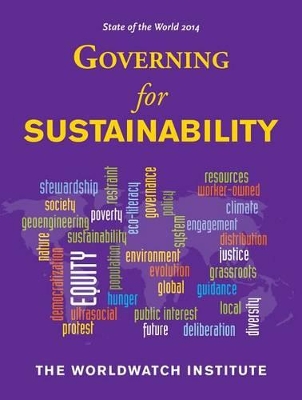State of the World (Paperback)
2 total works
Earth education is traditionally confined to specific topics: ecoliteracy, outdoor education, environmental science. But in the coming century, on track to be the warmest in human history, every aspect of human life will be affected by our changing planet. Emerging diseases, food shortages, drought, and waterlogged cities are just some of the unprecedented challenges that today's students will face. How do we prepare 9.5 billion people for life in the Anthropocene, to thrive in this uncharted and more chaotic future? Answers are being developed in universities, preschools, professional schools, and even prisons around the world. In the latest volume of State of the World, a diverse group of education experts share innovative approaches to teaching and learning in a new era. Topics include systems thinking for children; the importance of play in early education; social emotional learning; comprehensive sexuality education; indigenous knowledge; sustainable business; medical training to treat the whole person; teaching law in the Anthropocene; and more.EarthEd addresses schooling at all levels of development, from preschool to professional.
Its lessons can inform teachers, policy makers, school administrators, community leaders, parents, and students alike. And its vision will inspire anyone who wants to prepare students not only for the storms ahead but to become the next generation of sustainability leaders.
Its lessons can inform teachers, policy makers, school administrators, community leaders, parents, and students alike. And its vision will inspire anyone who wants to prepare students not only for the storms ahead but to become the next generation of sustainability leaders.
Citizens expect their governments to lead on sustainability. But from largely disappointing international conferences like Rio II to the U.S.'s failure to pass meaningful climate legislation, governments' progress has been lackluster. That's not to say leadership is absent; it just often comes from the bottom up rather than the top down. Action--on climate, species loss, inequity, and other sustainability crises--is being driven by local, people's, women's, and grassroots movements around the world, often in opposition to the agendas pursued by governments and big corporations. These diverse efforts are the subject of the latest volume in the Worldwatch Institute's highly regarded "State of the World" series. The 2014 edition, marking the Institute's 40th anniversary, examines both barriers to responsible political and economic governance as well as gridlock-shattering new ideas.

